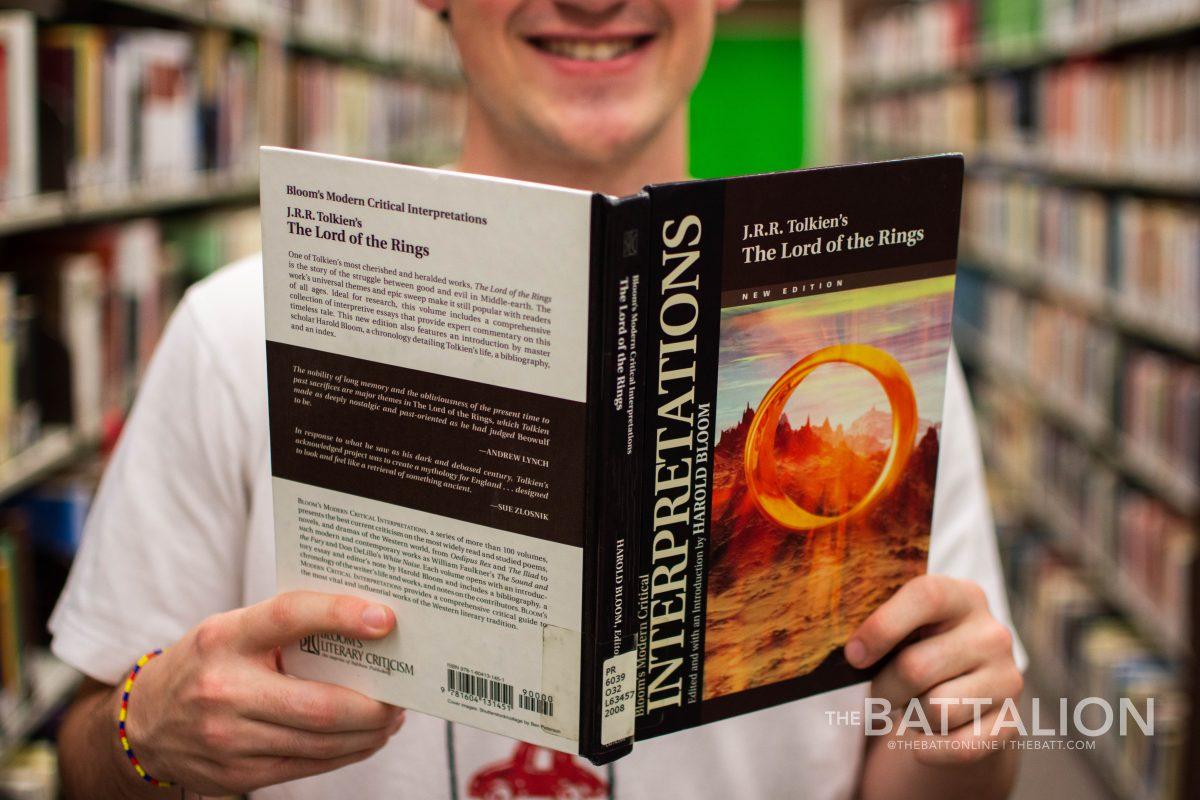Lovers of science fiction and fantasy might want to leave room in their degree plan for the new minor the English department wants to create.
The English department is working to create a science fiction and fantasy studies minor, spearheaded by two professors in the department, Richard Cooper and Apostolos Vasilakis.
Currently, the English department only gives students the option of completing a concentration in science fiction and fantasy studies, which doesn’t carry the same weight that an actual minor would, Copper said.
“We would like a minor because it’s more substantial and meaningful,” Cooper said. “The difference between a concentration and a minor is pretty substantial. One is official, and one is relatively unofficial.”
However, Cooper and Vasilakis have encountered a significant obstacle on their path towards creating the minor. Cooper said the lack of professors who are qualified to teach science fiction and fantasy courses is holding them back.
“The only thing that prevents us from doing it is that we don’t have the appropriate number of experienced, skilled teachers to teach these courses in such a way that we can offer them to everybody every semester,” Cooper said. “If we can demonstrate interest [in the minor], then perhaps we could petition for more hires.”
Current students have expressed interest for this minor to become a reality. Nutrition senior Samantha Chapman said she believed the minor would attract a large crowd of students.
“I think a lot of people would go for it,” Chapman said. “There are a ton of people I know in other majors that enjoy science but have that more creative side they don’t get to express because there’s not anything else than a hardcore English literature minor they can go for. I think that intimidates a lot of science people.”
Besides just allowing students to express their creativity, the minor could also be beneficial to students who plan to do creative work in the future. Environmental geoscience junior Anna Osborne said the minor would have been useful in her artistic ventures.
“I’m currently in the process of editing and publishing my own book, and having a minor such as this on my resumé might catch the eye of editors,” Osborne said. “It would be another way of showing proficiency in creative writing.”
Cooper said the science fiction and fantasy genres present powerful possibilities that others do not quite reach.
“For me, science fiction and fantasy always have a radical potential to them,” Cooper said. “An implicit part of imagining new and different worlds is comparing your own world to those worlds, seeing where they sort of hit or miss the mark.”
Chapman compared science fiction and fantasy stories’ ability to take the reader out of their reality against the experience of reading nonfiction.
“You don’t get this same sense of being immersed in a story [with nonfiction],” Chapman said. “It’s just me sitting on the couch reading, while in fantasy and sci-fi, it’s me riding on a spaceship next to the captain who’s trying to fight aliens, or in fantasy, going on this quest with a wizard. With other books, you just don’t get that.”
English department seeking to create new minor
March 3, 2020
Photo by Photo by Brandon Holmes
The Texas A&M English Department is looking to add a Science Fiction and Fantasy minor for students.
0
Donate to The Battalion
Your donation will support the student journalists of Texas A&M University - College Station. Your contribution will allow us to purchase equipment and cover our annual website hosting costs.
More to Discover









